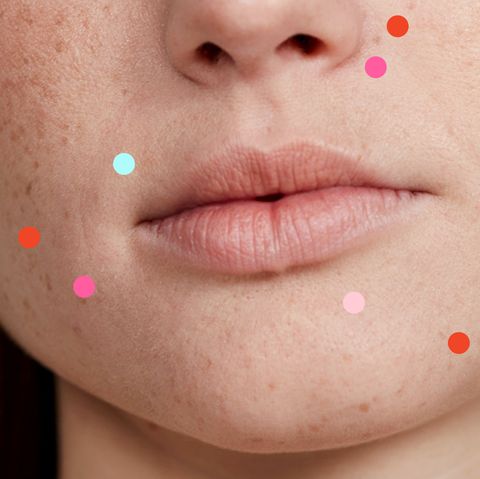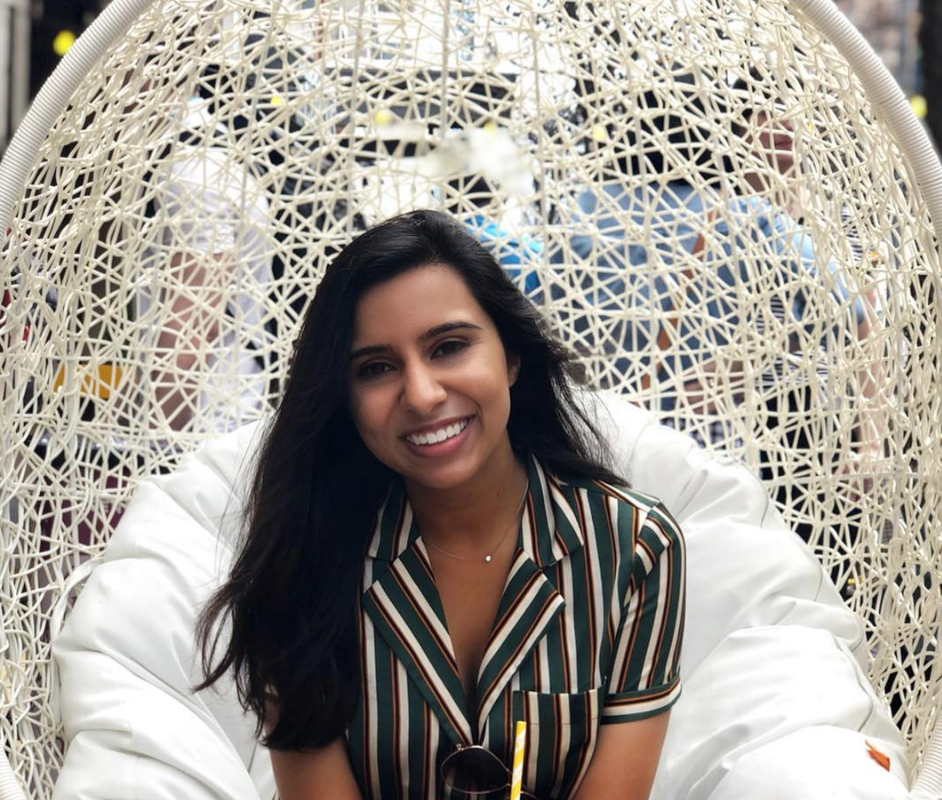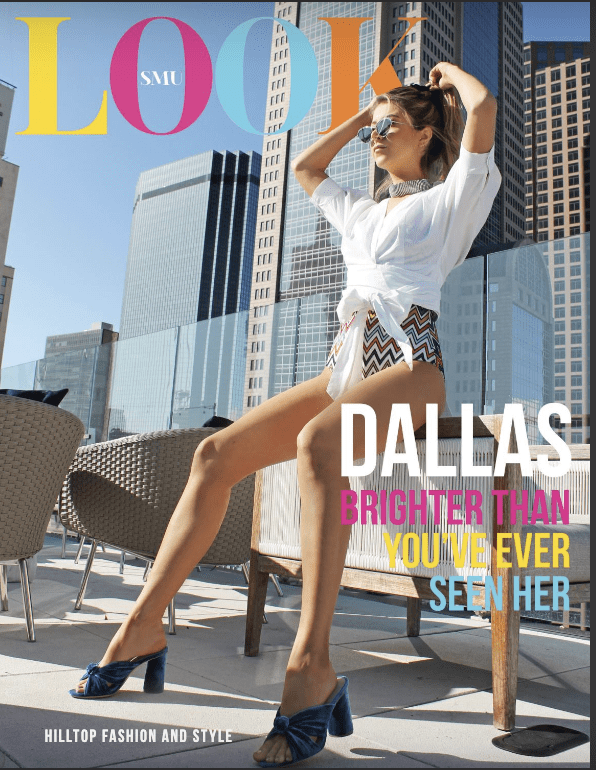Most people cherish the memories of high school graduation, but Emily Abdalla has spent the past year and a half of college trying to forget about hers.
“I had to give my valedictorian speech high on Benadryl and covered in hives,” Abdalla said.
She was having an allergic reaction to the third antibiotic she had been prescribed in attempt to clear up her skin — on top of trying just about everything the drugstore had to offer.
“At that point, my skin was nowhere near as bad as it was going to get in college,” Abdalla said.
The beauty industry profits from people like Abdalla. For years, beauty companies have defined the standards for perfection in women through their marketing and advertising, targeting women’s insecurities. However, a new wave of advertising is changing this narrative.
https://www.instagram.com/p/B8pN4YPJ3GV/?utm_source=ig_web_copy_link
“The media has had a narrow view of beauty which often included size zero models, with flawless looking skin. Models were not shown with freckles, pimples, dimples or bulges,” SMU advertising ethics professor Dr. Carrie La Ferle said. “If a woman watching was to have any of these qualities, which of course the average woman possesses, advertising lets them know this is a flaw and a product is needed to try to overcome or at least hide the imperfection.”
Abdalla learned from her dermatologist that there are very few chemicals used to treat acne. All of the different acne treatments in the drugstore are variations of the exact same ingredients.
“They have to base it all off of branding. A great way to do that is making people insecure,” Abdalla said.
Abdalla’s acne reached its peak during the second semester of her freshman year. She experienced intense anxiety and depression, often crying herself to sleep over the pain and embarrassment she felt. Her grades dropped, and she even declined an internship. Abdalla spent the majority of that semester locked away in her dorm room.
“I didn’t want to make eye contact with people because you can see when someone’s eyes shift to your face,” Abdalla said.
Abdalla spent thousands of dollars on products that didn’t work and countless trips to the dermatologist’s office trying to clear up her skin. Finally, she was prescribed an 80-milligram dose of Accutane, an intense acne medication that alone costs $2000.
https://www.instagram.com/p/B8g57Ilh57B/?utm_source=ig_web_copy_link
“People don’t want anything to be slightly wrong. If there’s anything someone can do to make themselves more perfect, obviously they’re going to want to do that,” Abdalla said.
Dr. La Ferle said that beauty companies today are selling much more than simply a remedy for acne or the perfect hand cream.
“I believe the beauty industry has tried to sell their products by selling hope. If you suffer from the imperfections of pimples, dimples, freckles, wrinkles, yellow teeth or dark circles under your eyes, there is hope for you to overcome or at least hide these flaws with brand x beauty product,” Dr. La Ferle said.
Despite the mental damage these standards of beauty can cause for women, few strides have been made to regulate how beauty companies are allowed to advertise.
“In the United States there are few restrictions on what are called ‘soft’ issues,” Dr. La Ferle said. “Soft issues focus more on the use of stereotypes in ads or digitally altering the size and presentation of models in advertisements.”
While the law has failed to interject on this issue, some companies have taken steps to promote self-confidence in women through their advertising.
Dove, a personal care brand, began its “Campaign for Real Beauty” in 2004. Over the course of 15 years, Dove has created numerous ads speaking about self-esteem which even extended to the “Confident Me” workshops put on in schools across the country, promoting confidence in young girls.
As a brand, Dove performed extensive research throughout the “Campaign for Real Beauty” on self-esteem in women. These studies show that only 4% of women worldwide think they are beautiful.
Dove is spearheading a movement called “femvertising,” Scripps Alumna Katherine Marcus Reker said in her essay discussing Neoliberal advertising.
Femvertising includes “pro-female messages within the advertising space, featuring seemingly genuine representations, claiming the use of real people and not actors to further their argument in authenticity,” Reker said.
https://www.instagram.com/p/B8eFp7Hnwjj/?utm_source=ig_web_copy_link
One of the most famous ads in the Campaign for Real Beauty is a video involving a forensic artist. The video shows different women sitting in a room and describing themselves to the artist while he was behind a curtain, drawing them. Other women would then come in and describe the previous woman to the artist, and he would create another portrait. The two portraits of each woman were hung up side by side in a gallery, and often, these drawings looked remarkably different. The point of the ad was to show the difference between how women view themselves and how others view them.
SMU Senior Isabella Panko related to this video. She said she has become so self-critical that she now finds it hard to accept a compliment.
“I think the video combats the standards of the beauty industry by telling women that they are ‘more beautiful than they think’ instead of trying to give them some vision of what they should look like,” Panko said.
Panko is not alone in her appreciation for this new style of advertising.
In a survey, the digital media company SheKnows found that 52% of women have purchased a product simply because of the positive portrayal of women in an advertisement.
“I think the industry has expanded the definition of beauty over the past five to ten years,” said Dr. La Ferle. “Not all beauty categories have excelled, but several have expanded images in terms of race, size, color, hair, and skin types and even age as well as what occupations a woman can compete in and still be considered beautiful.”
However, Abdalla still believes that the advertising industry has a long way to go.
While Abdalla was touched by Dove’s efforts to promote self-esteem, she does not find them to be a solution to any of the struggles women face today.
“I feel like it more applies just to how people look naturally and their features, like, I definitely don’t think that would help anyone feel better about acne or weight issues,” Abdalla said.
Abdalla believes that the only way for women to gain confidence is finding it in themselves.
“Nobody will ever be perfect because there isn’t even any such thing as a perfect person,” Abdalla said.
Although there is still criticism of the beauty industry and its advertising, the industry is taking steps in the right direction. Companies like Dove are proving that you don’t need to manipulate an audience to have successful ads.







